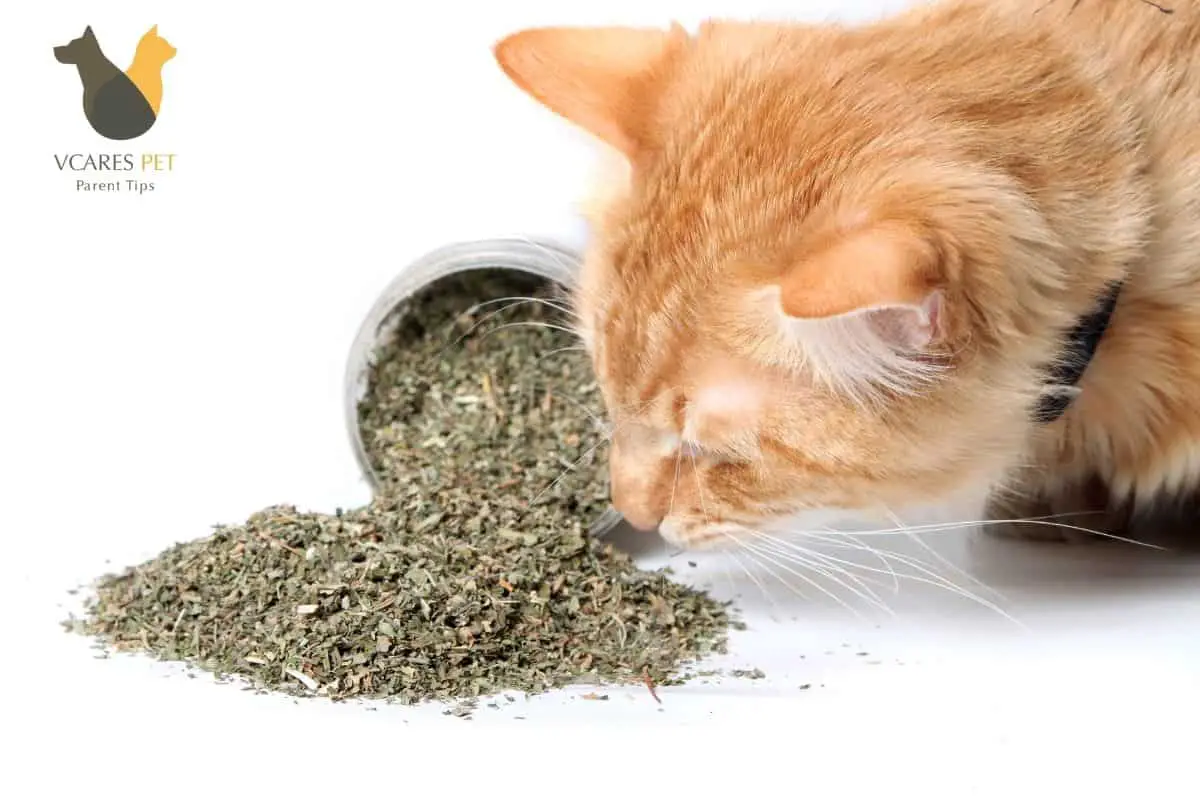If you’re a cat owner, you might have wondered whether it is safe for cats to eat catnip. Well, the good news is that catnip is totally safe for cats to eat! Catnip or Nepeta cateria is a type of herb that belongs to the mint family and it can make some cats go crazy with joy.
However, not all cats react the same way to this plant. Some cats might get very playful and energetic after eating or smelling catnip, while others might not show any interest at all.
It depends on their age, genes, and personality. Some breeds of cats, such as Siamese and Persian, are more likely to react to catnip than others.
Therefore, if you want to treat your cat with some catnip, you can introduce them slowly by putting a little bit on a cotton ball and placing it inside their favorite toy. By doing this they can discover its unique taste through playtime.
What Does Catnip Do to Cats?
Catnip or Nepeta cateria is a type of plant that belongs to the mint family, just like basil or oregano, but unlike those herbs. It can have a very strange effect on many cats when they eat or smell it.
Here is some of the thighs that catnip can make cats do are:
- Staring into space and walking around like they’re drunk
- Chewing and drooling
- Becoming very friendly with strangers (even ones they normally hate!)
How exactly does catnip affect cats? The leaves stems, and roots of this plant contain compounds called nepetalactone and nepetalic acid that mimic feline attractant pheromones. When a cat sniffs it or ingests it, these chemicals activate its pheromone receptor sites (which is how cats communicate with one another).
At that moment, the cat is filled with a sense of euphoria and happiness. However, this feeling only lasts for about 10 minutes before the chemicals wear off and the brain returns back to normal levels.
Why is Catnip Safe for Cats?
Although some cats show no reaction at all to catnip, it’s very safe for cats to ingest. Catnip is a natural herb that has no addictive properties and doesn’t cause physical dependence. It is just a fun treat for some cats who enjoy its taste and smell.
However, some cats might not like catnip at all. In fact, some cats might be allergic or have a bad reaction to catnip in some way.
This is very rare, but it can happen. If your cat eats or smells catnip, it can drool excessively, vomit, or have trouble breathing. Therefore, you should stop giving them catnip and call your vet right away.
But don’t worry, most cats can enjoy catnip without any problems. Catnip is completely safe for cats to eat and won’t harm them in any way.
In addition, catnip can be very helpful for cats who are stressed or anxious. Some vets use it to calm down nervous kitties and make them feel better.
Is Catnip Safe for Kittens?
Yes! There’s no need to worry about your kitty’s safety. Catnip is completely safe for kittens to eat and has no negative side effects on them at all, even when consumed in large quantities.
However, it’s important not to let young cats play with catnip-filled toys without direct supervision because they can tear them apart and accidentally ingest the herb. If this happens, monitor them for any negative symptoms and call your veterinarian if necessary.
Are There Any Negative Effects of Catnip?
Most cats will not have any negative effects from ingesting catnip at all. However, it is possible that some kitties can become overly sensitive to its chemicals instead of just sensually stimulated.
In these cases, cats can become anxious and jittery when they’re exposed to even a small amount of catnip. If your cat experiences this side effect from it then discontinue use immediately.
Another rare negative reaction is sensitization to it over time. In other words, if a cat consumes too much catnip over a long period of time, then it can have trouble being around it without becoming anxious. This is very rare but has been known to happen in some cases with cats that are extremely sensitive or hyper-reactive.
How Do You Safely Introduce Catnip to Your Cat?
Many vets recommend introducing your cat to catnip by slowly rubbing a few leaves or stems on their gums for several days before giving them the whole plant to sniff and play with.
This will help build up their tolerance and keep them from becoming too sensitive to it over time.
Also, try placing some inside your kitty’s favorite toy so they can discover how to play with it without your direct supervision.
If they do happen to chew up the leaves and get them stuck in their teeth, brush them gently before giving more or letting them loose. It is safe for you to ingest this herb as well so go nuts!
Can Catnip Be Toxic?
No. Although some cats can become overly sensitive to catnip, it is never toxic. Even in cases where they accidentally get large quantities of the herb stuck in their paws or fur, this will not cause them serious damage.
As long as you supervise your cat when they’re playing with catnip-filled toys and monitor for any negative effects then there’s no risk of toxicity.
How Often Can Cats Experience the Effects of Catnip?
Repeated exposure to catnip will not cause your kitty to become immune to its effects, but it can lessen their sensitivity over time. For this reason, vets usually recommend waiting 2 weeks between each introduction in order for it to have an effect on your cat.
Of course, you can try it again sooner if they’re not responding to it in the way that you’d like, but their reaction will be weaker than when they first tried it. If your cat does not display any reaction at all then that’s perfectly normal and there’s nothing wrong with them.
It is also important not to give your cat too much of this herb because it can cause them to become sick. If their reaction is unusually strong and they’re drooling excessively, vomiting, or having trouble breathing then you should take them to a vet immediately since that’s an emergency.
However, there’s no risk of toxicity with catnip and this is 100% normal for most cats.
Conclusion:
Catnip is safe for cats, but only when it’s consumed in low doses. If you’re looking to introduce your cat or kitten to the effects of catnip, make sure they have a small amount at first and wait until they’ve had time to adjust before giving more.
Cats are unlikely to experience negative side effects from catnip consumption unless they consume too much over an extended period of time.
Is there anything about this blog post that has caught your interest? We invite you to leave us a comment with any thoughts on our information!

